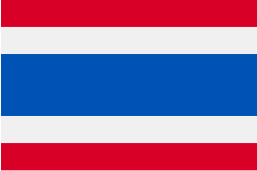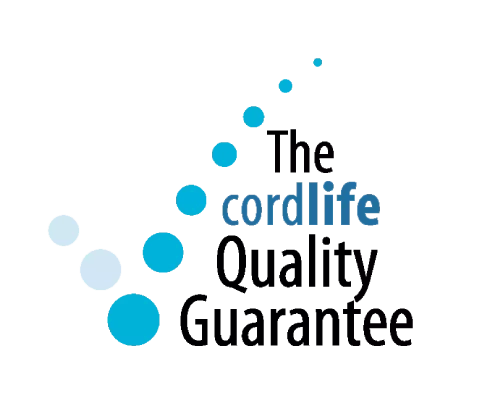
Give your baby a lifetime of protection
Get peace of mind against the unforeseeable.
Give your baby a lifetime of protection by banking with Cordlife today.

What is cord blood
Cord blood is the blood that remains in a baby’s umbilical cord and placenta after birth.

Lifesaving potential
Cord blood contains stem cells that can regenerate the blood and immune system.

Over 113 diseases
These cells have the potential to treat more than 113 disorders, such as leukaemia and lymphoma.

Family protection
Cord blood is a 100% match for your baby and has a higher chance of a match with her siblings.

Future potential
Cord blood is used in clinical trials for conditions such as autism, cerebral palsy and brain injuries.
Treat over 113 diseases
with cord blood stem cells
Since 1988, doctors have used cord blood to treat over 60,000 patients suffering from diseases such as leukaemia, lymphoma and blood disorders. Cord blood stem cell transplants are currently being used as standard mainstream treatment for the diseases listed here.
Diseases that can potentially be treated with cord blood stem cells
- Acute lymphoblastic leukaemia
- Neuroblastoma
- Non-Hodgkin’s lymphoma
- Retinoblastoma
- Severe combined immune deficiency
- Multiple myeloma
- Aplastic anaemia
- Fanconi’s anaemia
- Congenital dyserythropoietic anaemia
- Sickle cell anaemia
- Thalassaemia major
- Osteopetrosis
Ongoing clinical trials using stem cells that can be found in cord blood
- Autism
- Cerebral palsy
- Global developmental
- Parkinson’s disease
- Spinal cord injury
- Stroke
- Myocardial infarction
- Alopecia areata
- Diabetes (Type 1 & 2)
- Lupus
- Multiple sclerosis
- HIV
- Breast cancer
- Ovarian cancer
- Cartilage injury
- Osteoarthritis
Over 3,000 clinical trials registered
Ongoing worldwide research is pushing science to discover the greater potential of stem cells that can also be found in cord blood. By storing your baby's umbilical cord stem cells, you are availing your family to more medical options in the future.
Reference: Clinicaltrials.gov. U.S. National Library of Medicine. https://www.clinicaltrials.gov/ct2/results?term=haematopoietic+stem+cells&Search=Apply&recrs=b&recrs=a&recrs=f&recrs=d&recrs=e&age_v=&gndr=&type=&rslt=. Accessed March 7, 2023.
More reasons to consider cord blood banking

Likelihood of
needing stem cells
We become more vulnerable to diseases as we age. Research shows that 1 in 3 people will benefit from regenerative medicine therapy.1

Higher chance
of finding a match
You’re more likely to find a cord blood match within the family than bone marrow, which means your family member can get treatment sooner.2

Lower risk
of complications
Studies have shown that transplant complications are lower when patients get stem cells from a family member.

Once-in-a-lifetime opportunity
You only have one chance to collect your baby’s precious cord blood: at birth. Once missed, this opportunity is lost forever.
- Harris DT. Cord blood stem cells: a review of potential neurological applications. Stem Cell Reviews. 2008; 4:269-274.
- Gluckman E, Rocha V, Boyer-Chanmard A, et al. Outcome of Cord-Blood Transplantation from Related and Unrelated Donors. N Engl J Med. 1997; 337-373-381.
Access to
potential medical resource
Get a peace of mind knowing that you’ve given your family immediate access to a potential medical resource in case it’s ever needed.
How Cordlife clients have benefited from their cryopreserved cord blood

Cordlife has successfully helped our clients release their cryopreserved cord blood units for transplantation or therapy at
18 healthcare institutions in 9 countries









What diseases did our clients use cord blood to treat?
Autologous
During an autologous transplant or infusion, the patient’s own stem cells are reinfused into the body.
- Cerebral palsy
- Autism spectrum disorder
- Neuroblastoma
- Brain injury
- Hypoxic-ischemic encephalopathy
- Global developmental delay
- Development dyspraxia
Allogeneic
During an allogeneic transplant or infusion, the patient receives stem cells from a donor.
- Thalassaemia major
- Aplastic anaemia
- Sickle cell anaemia
- Severe-combined immune deficiency

Most of them used their own cord blood
Most of the cord blood units released at the request of our clients were used on themselves, while the remaining units were used to treat a sibling.

Triple Protection Guarantee
Highest Quality Service at Reasonable Prices!
As a globally recognized stem cell storage company, we continue to cooperate with many medical institutions and research institutes around the world to ensure high-quality services and reasonable fees, so that every family can benefit from private cord blood storage services and protect the health of their families.
A Cord Blood Replacement or a Compensation of up to HK$300,000*
Protecting your baby’s cord blood is your most precious gift to your baby. Guaranteed to providing you with the greatest assurance, Cordlife’s premium protection coverage should be you FIRST choice.
*The compensation amount is SG$50,000. Please be aware of the actual amount will be affected by forex rate.
HK$58 Million Professional Indemnity Insurance^
^The compensation amount is SG$10,000,000. Please be aware that the actual amount will be affected by forex rate.
Cord Blood Transplant with Cash Coverage up to HK$300,000*
Cordlife takes care of your medical needs. If your baby needs to have cord blood transplant, our group will provide HK$300,000 cash protection which can help the medical expenses, providing extra support.

Getting Started

Enrol Now
The collection of cord blood is a simple procedure that poses no risk to you or your baby. It is important that you make your banking decision before your due date so that you and your caregivers can be ready for the collection. You only have one chance to collect your baby's cord blood at birth, so this is a critical decision.

Price Plans
Contact us to know more about the latest price and information
Hong Kong: (852) 3980 2888
Macau: (853) 6881 0781
WhatsApp: (852) 9660 1317

Download Free Information Kit
Download FREE information kit to know more about the benefits of cord blood banking and Cordlife.
Sources
- Diseases treated page. Parent’s Guide to Cord Blood Foundation. http://parentsguidecordblood.org/diseases. Accessed February 1, 2023
- Nietfeld JJ, Pasquini MC, Logan BR, et al. (2008). Biology of Blood and Marrow Transplantation. 14:316-322.
- Mayani H, Wagner JE, Broxmeyer HR (2019). Cord blood research, banking, and transplantation: achievement, challenges, and perspectives.
Accessed February 1, 2023 - www.cordblood.com/newborn-stem-cells-101
- For details, visit www.cordlife.ph/release-track-record
- As of May 2022, based on consolidated fgures of Cordlife Group Limited and its associates.
